- Become a member
- Become a member
- Become a member
- Become a member
What We Do
The mobility industry's biggest data challenges can only be solved if we work together. MobilityData facilitates the industry to develop data specifications and tools.
Transit Work
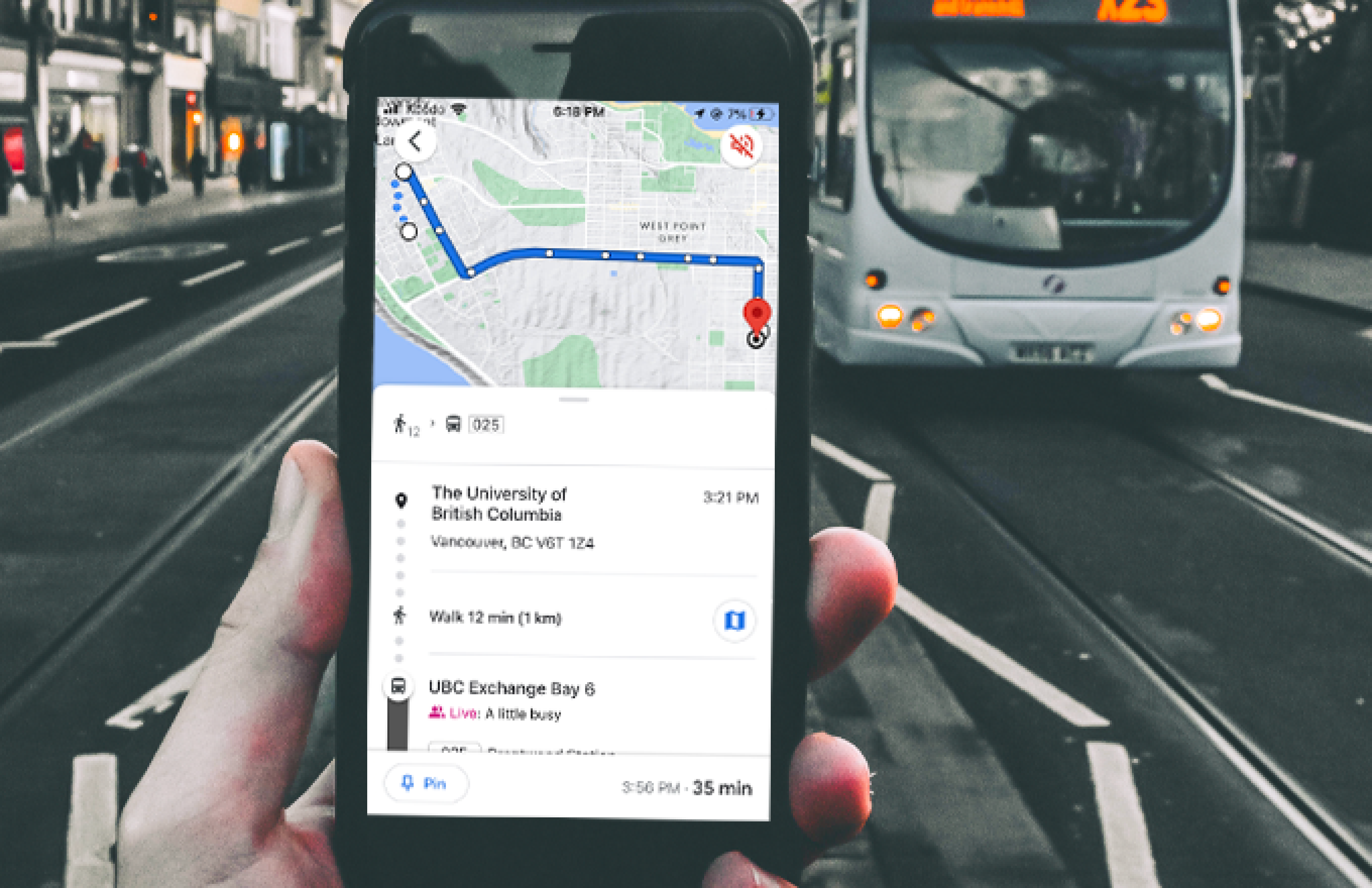
General Transit Feed Specification (GTFS)
GTFS is the de facto standard for representing transit passenger information. MobilityData identifies the GTFS community's highest priorities and facilitates the open voting process for adopting new changes.
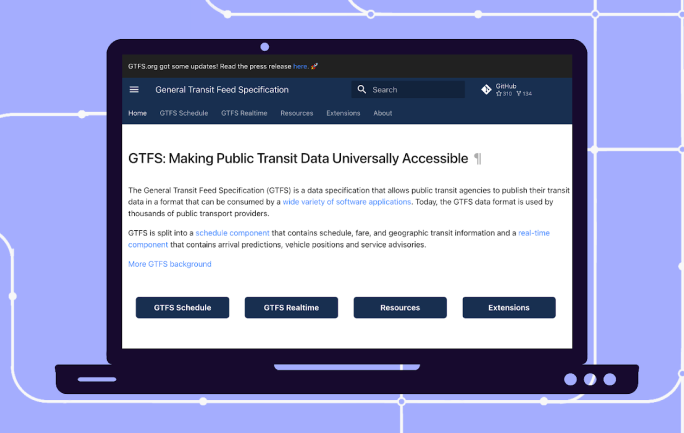
gtfs.org
To make learning GTFS as easy as possible, MobilityData has launched a new version of gtfs.org. Here you can find up-to-date information on the specification requirements and best practices.
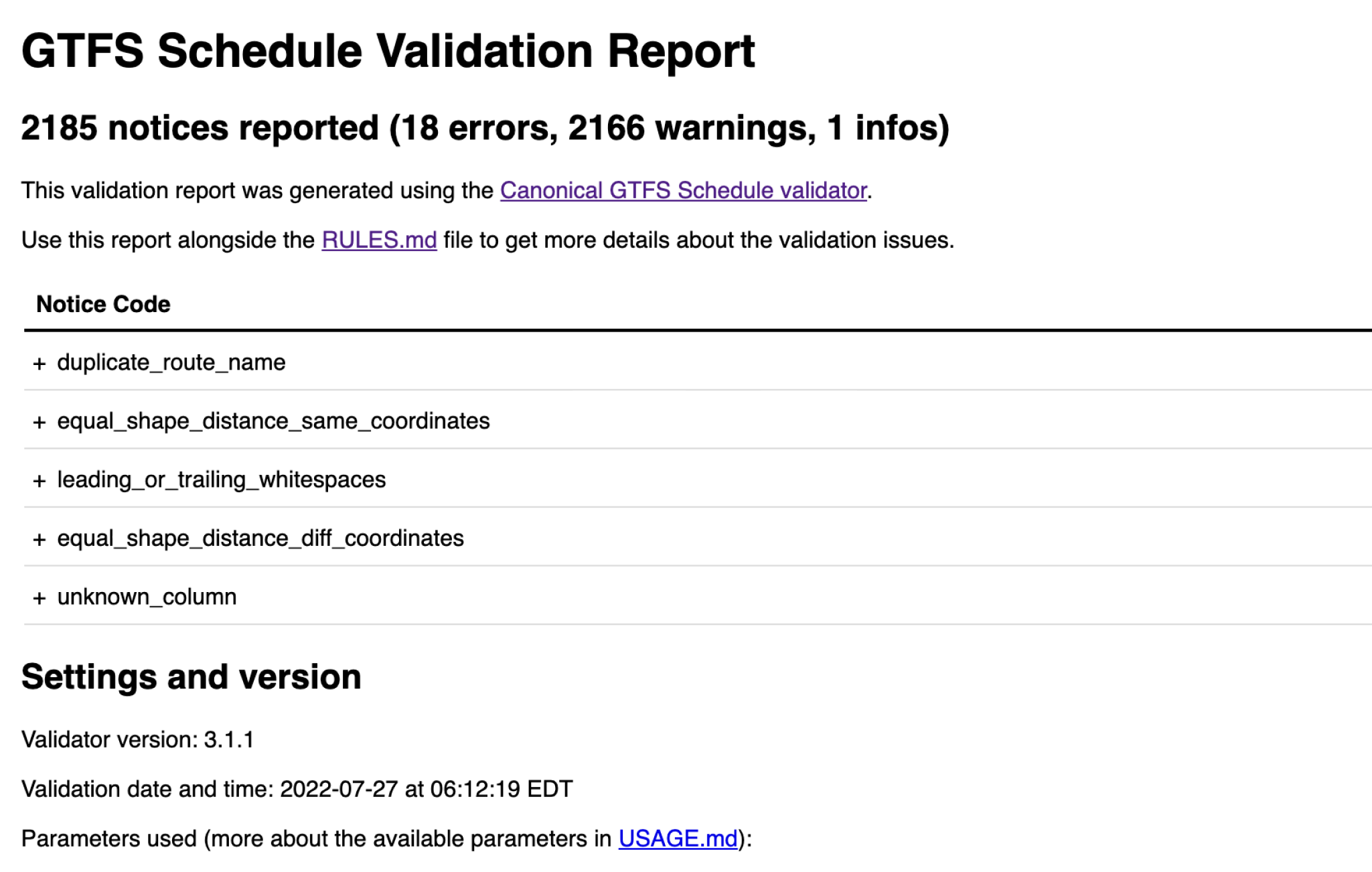
GTFS Data Quality Tools
Millions of passengers need high quality data to make decisions about how to plan their trip. See data quality reports with the MobilityData's GTFS validator and GTFS Realtime validator. Check that signage and names are accurate with the GTFS Grading Scheme. Open and parse GTFS-Realtime feeds with the GTFS Realtime Language Bindings.
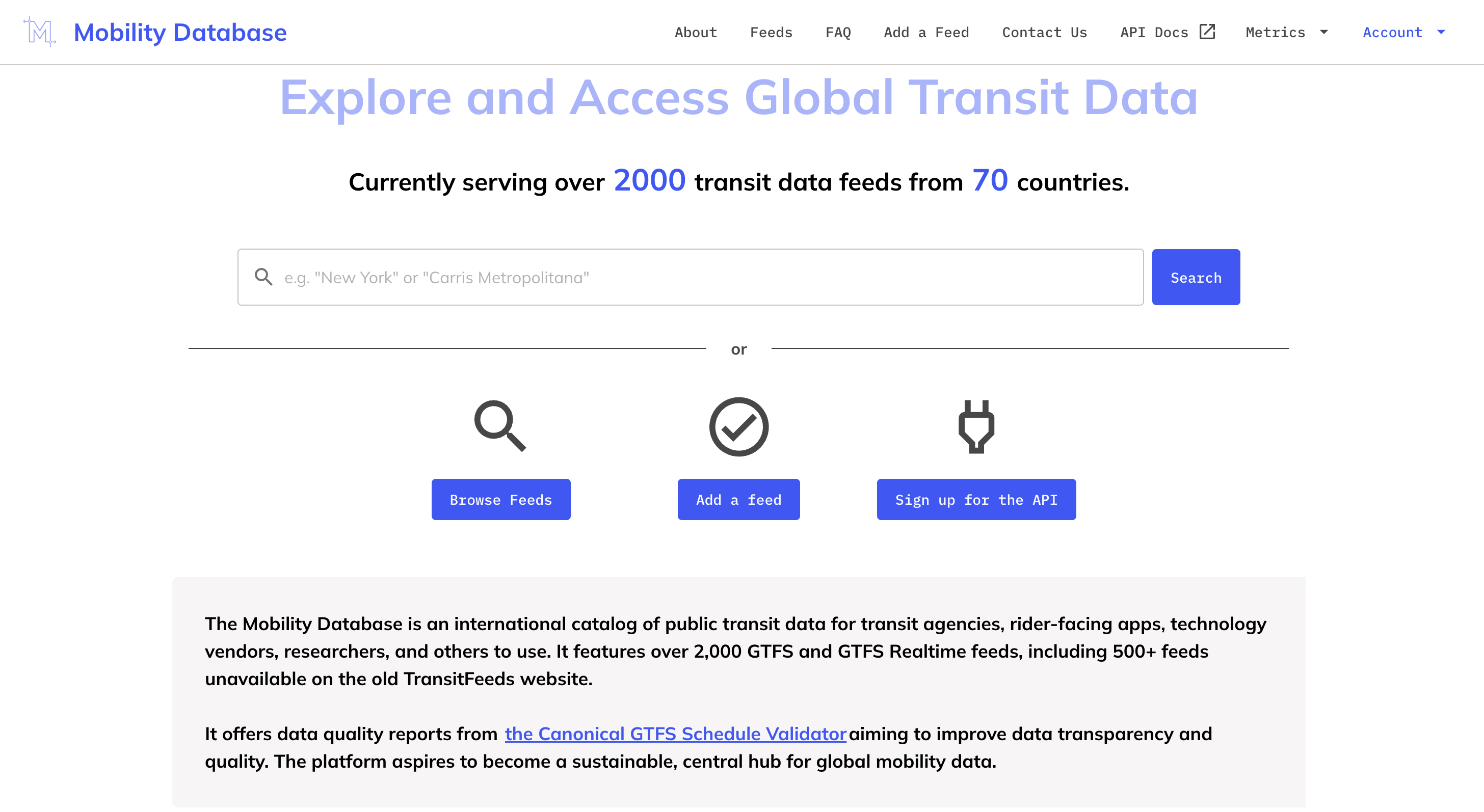
Mobility Database
Discovering transit data feeds from across the world is a challenge. The Mobility Database is a directory of global GTFS and GTFS-Realtime feeds. You can browse feeds to share in your trip planner or help with research analysis. Search feeds by location, status, and features like GTFS Pathways, Flex and Fares.
Transit Integrated Data Exchange Specification (TIDES)
TIDES is the Transit Integrated Data Exchange Specification and is your key to accessing, managing, and using transit operations data.
The Operational Data Standard (TODS)
The Operational Data Standard (TODS) is an open standard for describing how to operate scheduled transit operations which can be used to port scheduled operations between software products (e.g. scheduling systems and CAD/AVL systems), agencies, and more. ODS leverages the existing General Transit Feed Specification (GTFS) and extends it to include information about personnel and non-revenue service.
Transit Highlights

GTFS-Fares v2 base implementation adopted into the official specification
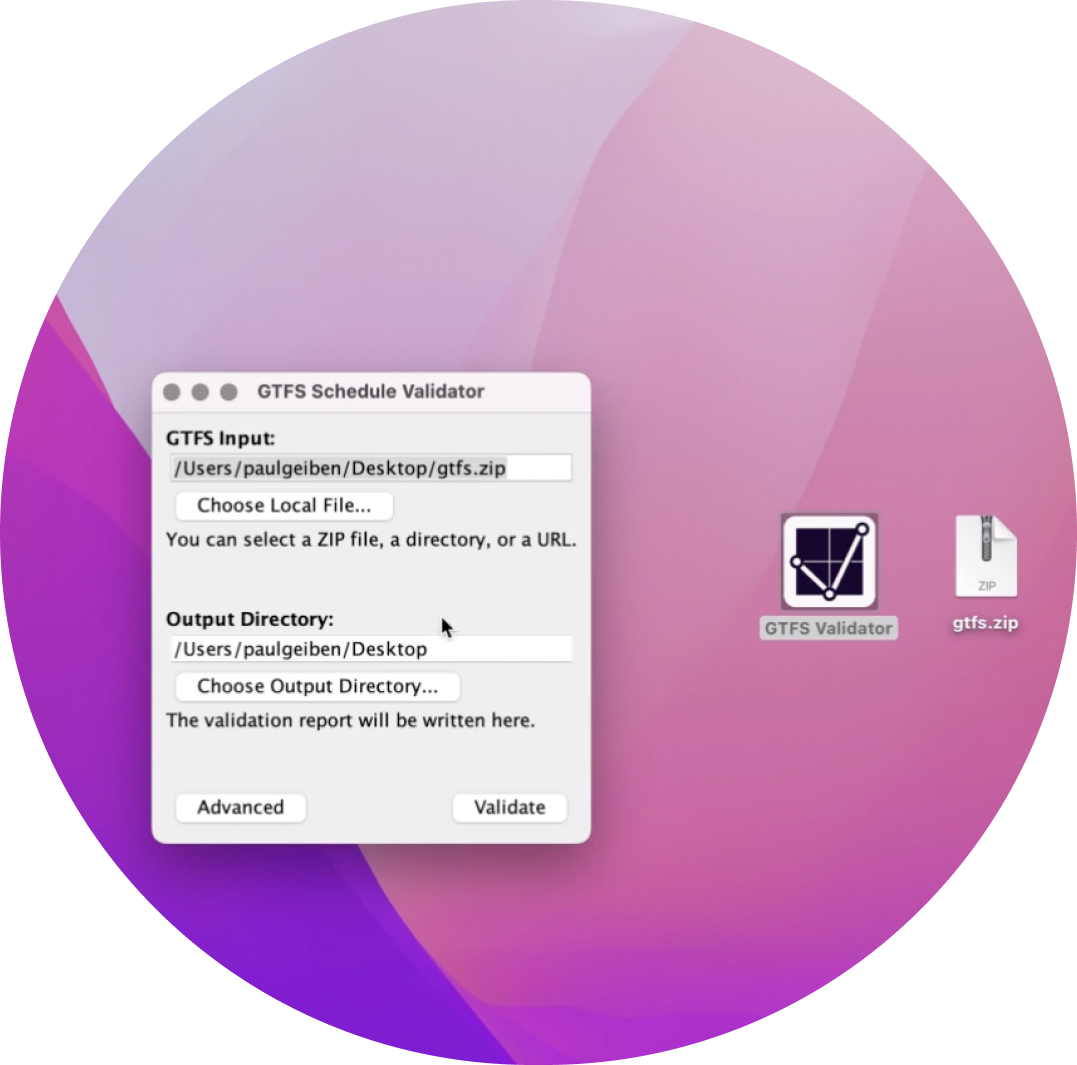
New desktop app to validate GTFS Schedule datasets easier

Browse the Mobility Database by feature: Fares, Flex and Pathways
Shared Mobility Work
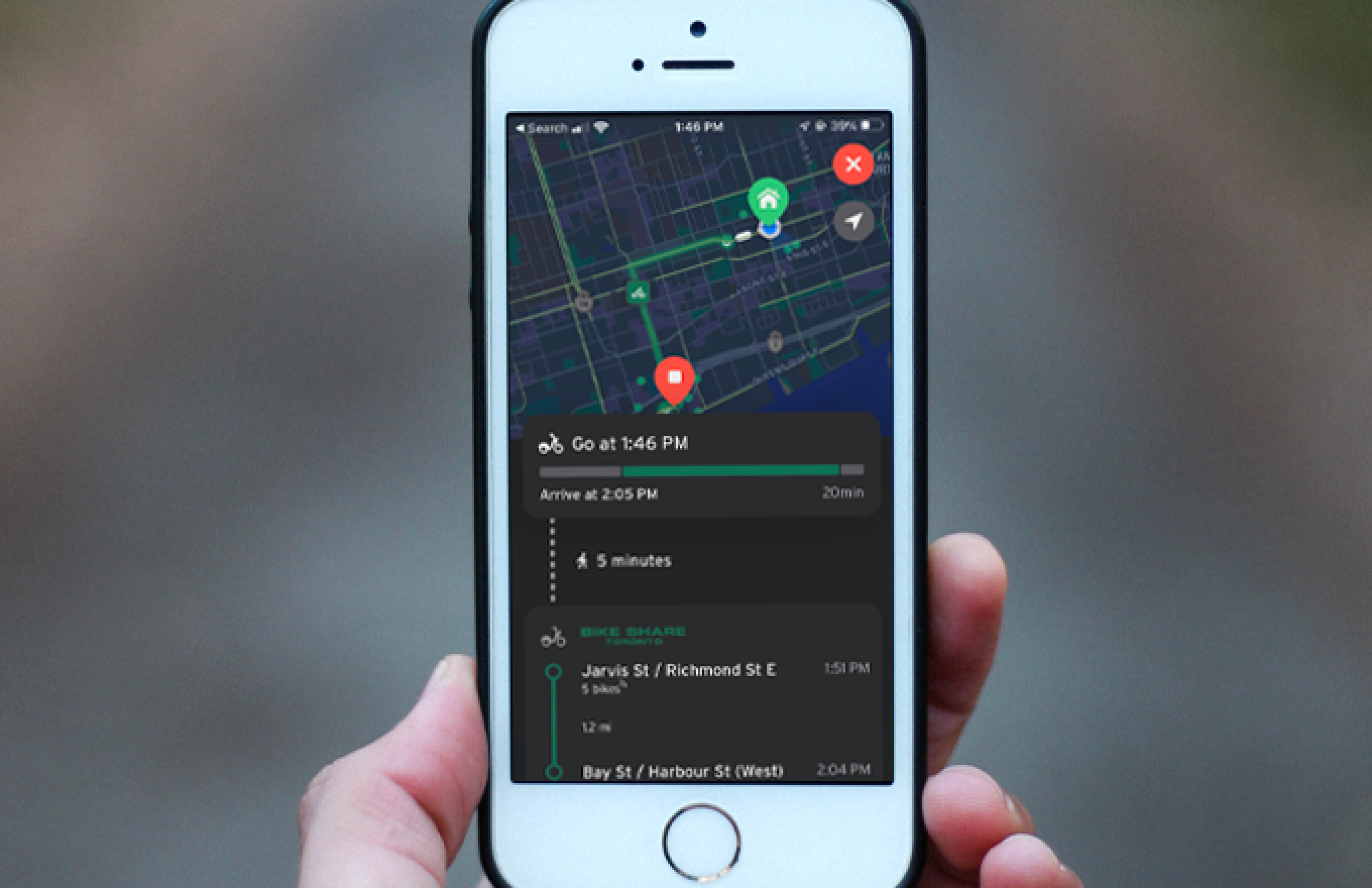
General Bike Feed Specification (GBFS)
GBFS is the de facto data exchange standard for shared mobility information. MobilityData identifies the GBFS community's highest priorities and facilitates the open voting process for adopting new changes.
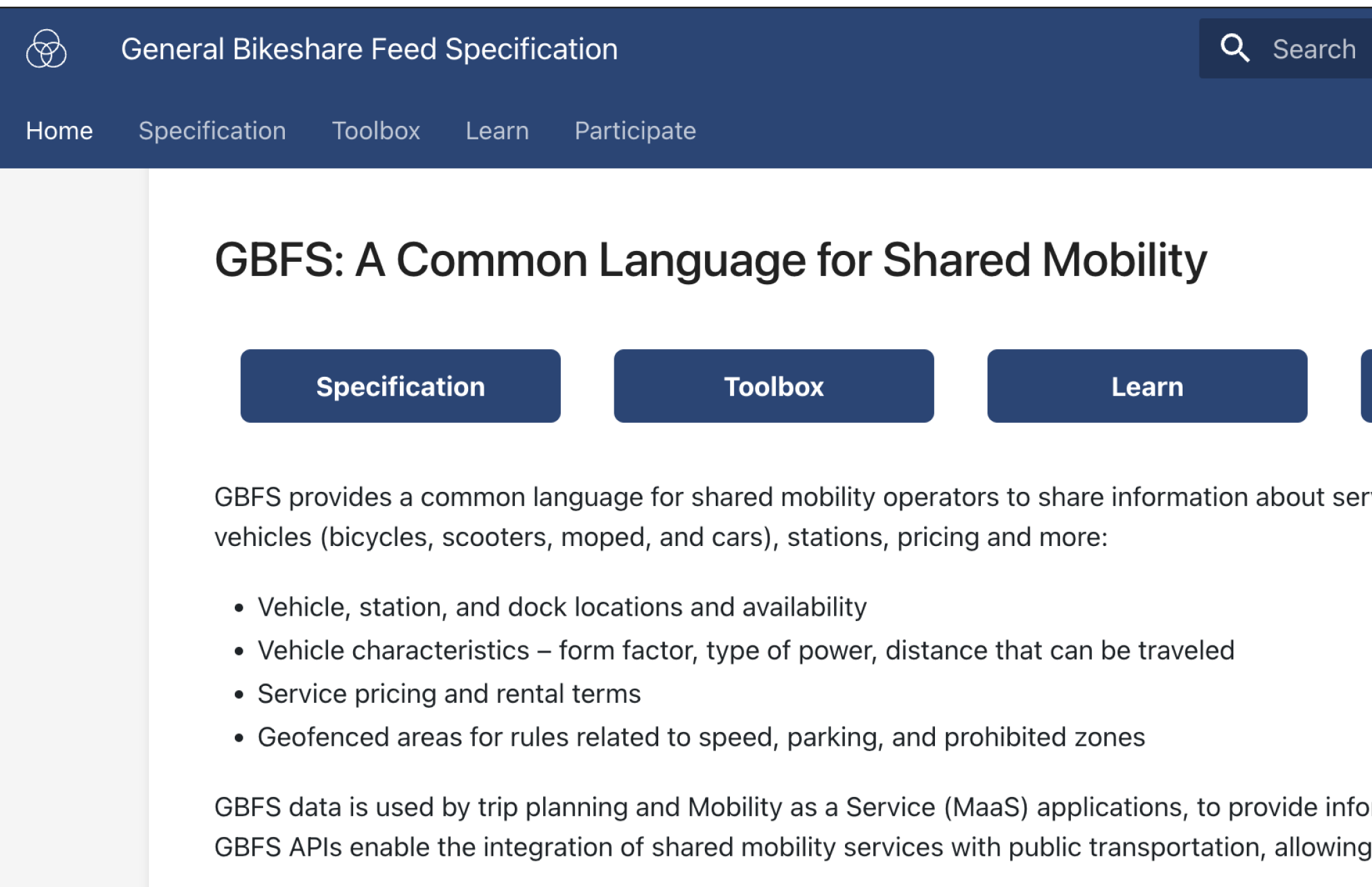
gbfs.org
Learning a new data standard can be intimidating. Go to gbfs.mobilitydata.org to learn about how to create a GBFS feed and how the community makes changes to the specification.
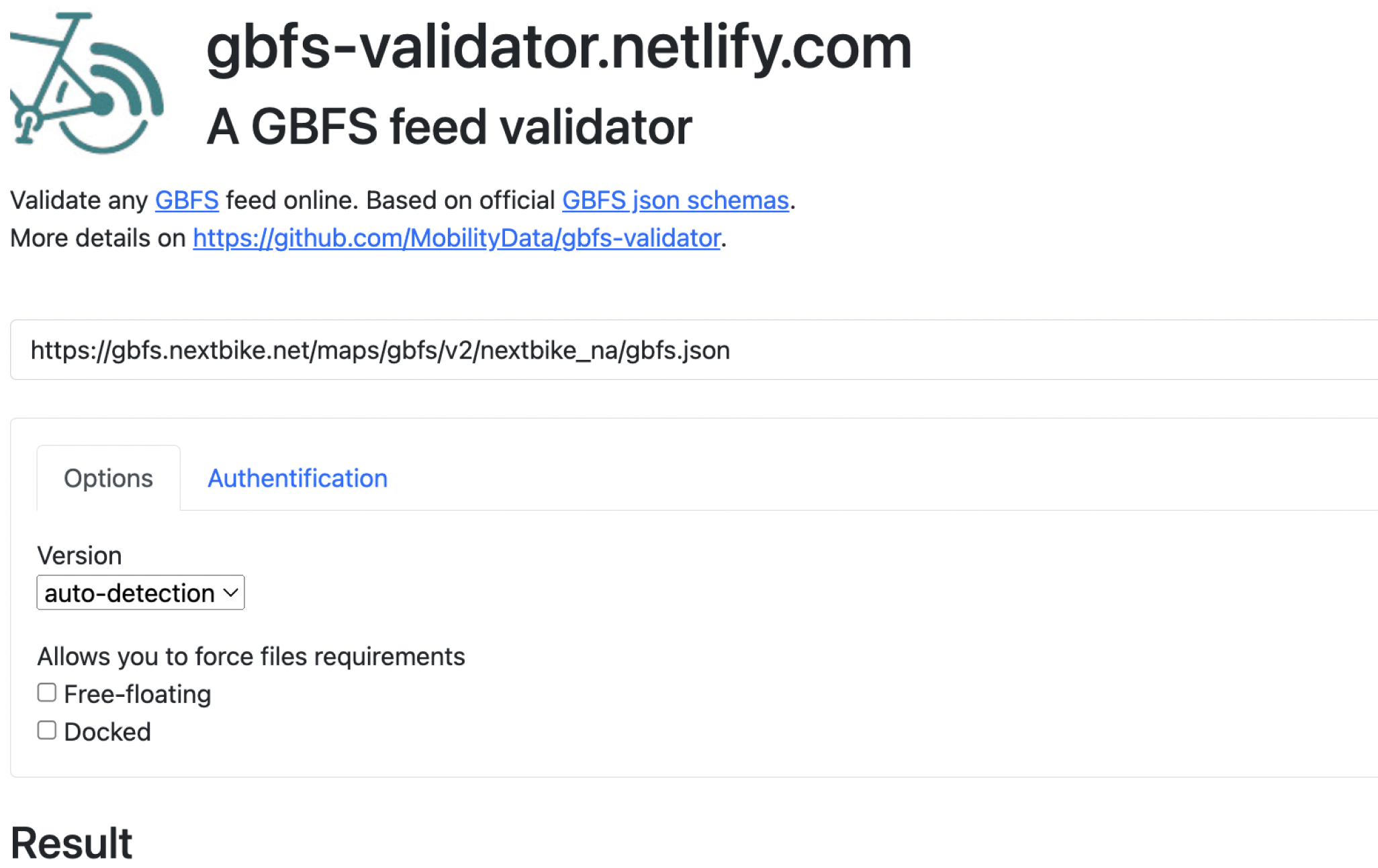
GBFS Data Quality Tools
High data quality is critical for passengers to make well-informed travel decisions. With the open source GBFS validator, you can select a feed and see a data quality report.
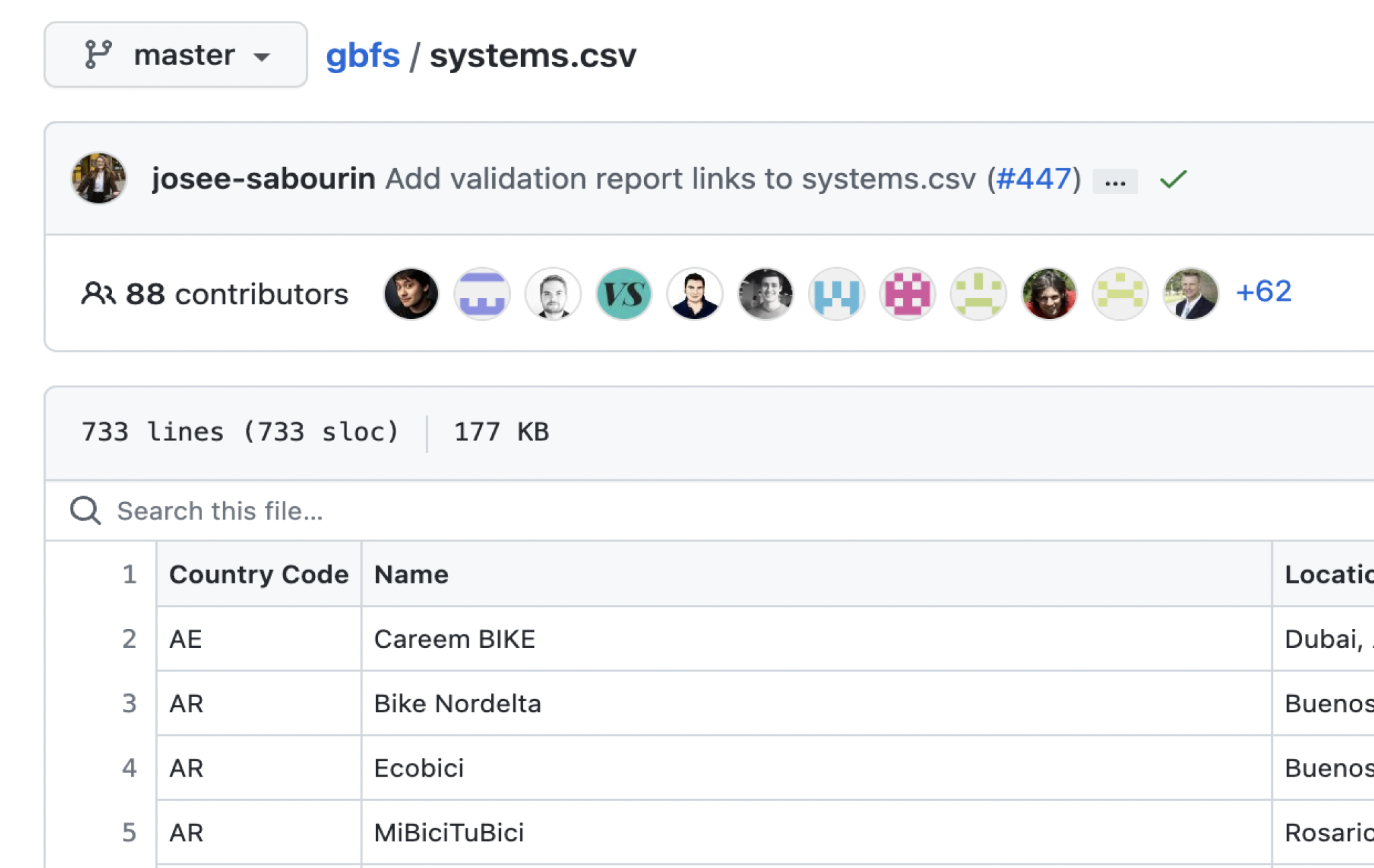
systems.csv
It is time consuming for trip planning applications to find GBFS data from operators around the world. With systems.csv, you can browse feeds to share with passengers or conduct service analysis.
Shared Mobility Highlights

Expanded GBFS from bikeshare only to include scooters, mopeds, and cars

Added variable pricing information to GBFS

Created documentation for policy-makers
Interoperability
Mobility Data Interoperability Principles (MDIP)
The Mobility Data Interoperability Principles (MDIP) coalition is government agencies, mobility service providers, and nonprofit organizations that are dedicated to changing the relationship between transit and technology. MDIP establishes a vision for the transit industry in which all mobility data is communicated by interoperable technology components using open standards. Interoperability is the next step for the software and hardware that support transit operations, planning, reporting, and the rider experience. It is a necessary condition for transit to keep pace with the changing world of personal mobility and to develop service that meets the expectations of the riding public.
Impact
See examples of how GTFS and GBFS impact travelers across the globe.
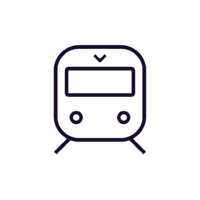
GTFS is used by over 10,000 transit operators in more than 100 countries

12 organizations from 6 countries collaborated to pass the base implementation of GTFS-Fares v2

Our GTFS Schedule validator is used by major trip planners including Google Maps, Transit and Moovit

GBFS is used by over 920 mobility systems in 46 countries across 5 continents